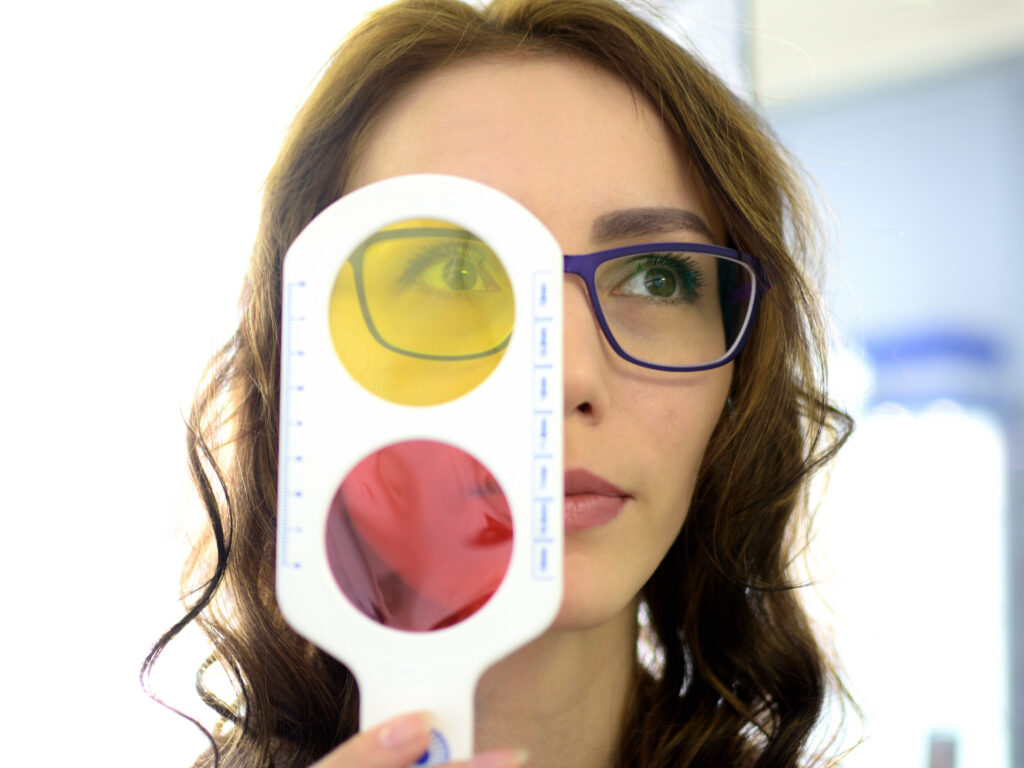Home » Blog » Color Blindness…Are there Different Kinds?
Color Blindness…Are there Different Kinds?
Posted by: Georgia Center for Sight

Chances are that you’ve all heard of or known someone with a type of colorblindness at some point in your life. Most humans have the ability to perceive millions of different colors due to three types of cones in our eyes that relay colors to our brains. However, 8% of men and .5% of women worldwide have a faulty cone or can only use two cones in their eyes to perceive color. This results in “color blindness” as we know it, or color deficiency.
While color blindness is relatively common knowledge, many people don’t know that several different types determine what colors an individual can see.
The first type of color blindness we will discuss is called “red-green color blindness.” Red-green color blindness results from dichromacy, meaning only two cones in your eye function correctly (regular vision is referred to as trichromacy). Most colorblind people are men because the genes involved in color vision are on the X chromosome, of which men only have one. Red-green color blindness is the most common form of color blindness. This type results in difficulty distinguishing between reds, greens and oranges (therefore causing blues and yellows to stand out).
Blue-yellow color blindness, also known as Tritanopia or Tritanomaly, alters the ability to distinguish some blues from greens and some yellows from violet. This form of color blindness is extremely rare, affecting 1 in 30-50,000.
Total color blindness (also called Achromatopsia and Monochromacy) results in a person’s inability to see any colors. To these individuals, the world is a black and white movie. This condition only affects 1 in 30,000 people.
If you’re a woman and you think you see colors differently, you may be one of the rare cases of women with a fourth cone known as tetrachromacy. If this is the case, you may be able to see 100 times more colors than the rest of us!
If you think you have some color vision deficiency, you may want to consider making an appointment with Dr. Dong. He can give you the Ishihara Plate test or use more sophisticated testing if needed to find out if you are indeed color blind. Call Georgia Center for Sight at (800) 287-2519 today to learn more about color blindness. https://www.georgiacenterforsight.com/contact
